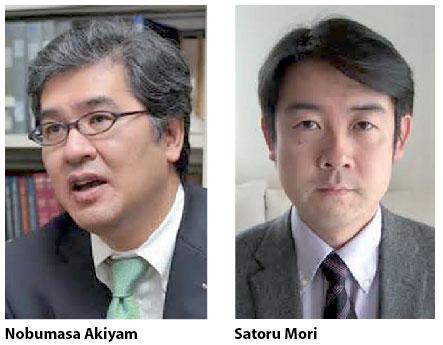You are here
Middle East stability ‘a vital interest’ for Japan — scholar
By Saeb Rawashdeh - Feb 16,2016 - Last updated at Feb 16,2016

AMMAN — Since the Middle East is the major energy supplier of oil and gas for Japanese industrial needs, the region’s stability is a vital geopolitical interest for Japan, according to a professor at Tokyo’s Hitotsubashi University.
“Moderate Muslim states are the proper partners of Japan,” said Nobumasa Akiyama, a professor at Hitotsubashi University’s graduate schools of law and international and public policy, adding that “Jordan and Japan have special relations.”
The professor’s remarks came during a lecture under the title “Japan’s Strategy Towards the Middle East: Challenges and Opportunities”, delivered at a seminar held last Thursday at the Middle East Scientific Institute for Security in Amman.
The regional rivalries between Israel and Iran, and between Israel and Arab states, as well as confrontations between Iran and Saudi Arabia, are drivers of instability, Akiyama said.
Apart from regional rivalries, terrorism and insurgency in the shape of various extremist groups such as Daesh, Al Nusra Front and Al Qaeda also undermine the stability of the region, he continued, highlighting the deaths of Japanese citizens in terror attacks on a natural gas plant in Algeria in 2013 and by Daesh in Syria in 2015.
Another potential threat is the spread of extremism from the Middle East to East and Southeast Asia, as evident in terror attacks in Indonesia, the professor noted.
“Certainly, the Japanese are a pacifist nation. It is also true that there are restrictions on the use of force, despite the recent amendment of the interpretation of the constitution,” Akiyama said.
“However, Japan is making a proactive contribution to international peace, with the emphasis on economic and social assistance as Japan possesses strength in these fields,” he added.
In regard to the current turmoil in the Middle East, Akiyama suggested three strategies for dealing with the rise of radical movements: strengthening counterterrorism measures, enhancing diplomatic ties and enabling the creation of societies immune to radicalism.
“Peace and stability are the foundations for economic prosperity, and economic prosperity is the foundation for peace,” the scholar stressed.
At the same seminar, Satoru Mori, a professor at the Department of Global Politics in the law faculty of Tokyo’s Hosei University, gave a lecture titled “Recent Developments in Japan’s Security Policy and the Japan-US Alliance”.
The key characteristics of Japanese security policy are flexibility, alliances, security cooperation and capability, according to Mori.
He elaborated on these four characteristics, explaining that flexibility means expanding the scope of Japanese Self-Defence Forces; alliance relates to boosting Japanese-US defence cooperation; security cooperation invigorates capacity-building and stepping up defence article transfer; while capability is the build-up of a dynamic joint defence force. In light of increased tensions in the Pacific region, Mori underscored that “the need of Japan’s strategic approach is to review its constitution and prepare for all kinds of scenarios”.
“The ultimate goal is to proactively preserve peace and security in the Asia-Pacific [region] and beyond,” he concluded.
Related Articles
AMMAN — Japanese Prime Minister Shinzo Abe on Friday received Foreign Minister Ayman Safadi who delivered him a message from His Majesty Kin
Visiting Japanese Prime Minister Shinzo Abe has urged Middle East countries to unite in their fight against terrorism and efforts to address other regional challenges, vowing that his country would pursue its policy of “proactive contribution to peace”.
AMMAN — Deputy Prime Minister and Foreign Minister Ayman Safadi met with Japanese Foreign Minister Yoshimasa Hayashi on Thursday on the side
















